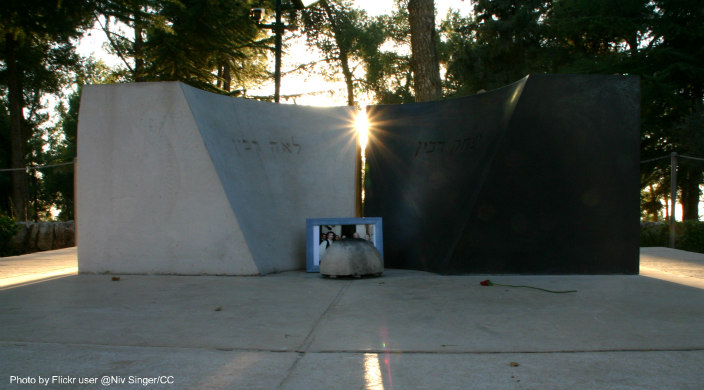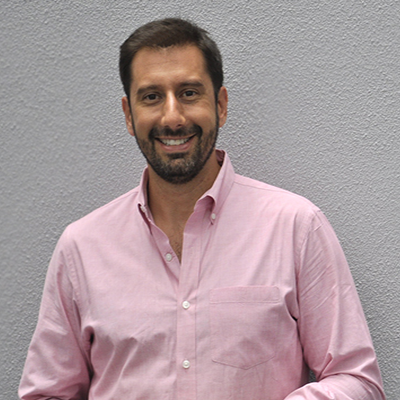
“Take your son, your only one, the one you love, Yitzhak…” (Gen 22:2)
Just as the biblical story of the Akeidah (the binding of Isaac) perplexes us and forces us to ask difficult questions, so too, does Israeli society struggle – as it has for two decades – with the context in which to observe the yahrzeit of Yitzhak Rabin.
The prodigal son of the Zionist enterprise, Rabin was born in 1922 and educated at the famous Kadoorie Agricultural High School. He joined the Palmach (the elite fighting force of the Jewish underground army) in the 1940s and became one of the great warriors of the pre-state period, rising to become chief of staff in the 1960s, and eventually Israel’s first native-born prime minister.
Today, November 4th, is the Gregorian anniversary of the 1995 peace rally at which Rabin was assassinated. Each year around his yahrzeit (observed on the 12th of Cheshvan), many organizations create various ceremonies, educational curricula, and events to commemorate Rabin, his life, and the lessons learned from his tragic death. Unfortunately, a look at Israeli society today does not always demonstrate that lessons, in fact, have been learned.
In the early days after the assassination, there were those in the National Religious camp who were publicly remorseful – condemning Rabin’s murder as not justified by halachah, connecting the dangerous rhetoric of those who opposed the Oslo peace process with the incitement to violence.
Rabbi Professor Dalia Marx asks challenging questions about how we should observe this day. Should it be a day of learning about Rabin as a person? A day of national introspection following Yom Kippur? A day dedicated to combatting hate with love and to studying the dangers of violent rhetoric? Should it be filled with prayer and religious ritual or should it remain a secular, state-run memorial day? Should this day maintain the biblical tradition of fasting to mark an assassination as the Fast of Gedaliah does? Her point is that even after wrestling with this issue for 20 years, Israeli society has yet to reach a clear consensus about how to observe the day – ideologically, historically, religiously, or politically.
I would suggest “all of the above” as an appropriate consensus.
The assassination of a prime minister touches each individual and each sector of society differently. Although Rabin was not our “only son” nor was he loved by all, we each need to wrestle with his death in search of the lessons the tragedy teaches us individually, communally, and ideologically.
The Progressive Rabbinical Council of Israel (MARAM) has declared today a yom ta’anit (fast day) on which Reform and Progressive clergy are prohibited from performing weddings or b’nai mitzvah, and the public is encouraged to fast – as a way both to mark the tragedy of Rabin’s murder, and to maintain a religious awareness that the lessons of his life and death have yet to be fully internalized by Israel’s education system and society-at-large.
Indeed, many challenges remain as incitement and dangerous rhetoric is still audible, and dangerous zealotry among our own is still visible. It is no surprise that we still fear that history may repeat itself.
In his eulogy for Rabin, President Bill Clinton captured the sentiment many of us still feel on this 20th anniversary:
This week, Jews all around the world are studying the Torah portion in which God tests the faith of Abraham, patriarch of the Jews and the Arabs. He commands Abraham to sacrifice Yitzhak. “Take your son, the one you love, Yitzhak.” As we all know, as Abraham, in loyalty to God, was about to kill his son, God spared Yitzhak. Now God tests our faith even more terribly, for he has taken our Yitzhak. But Israel's covenant with God for freedom, for tolerance, for security, for peace – that covenant must hold. That covenant was Prime Minister Rabin's life work. Now we must make it his lasting legacy. His spirit must live on in us.”
Indeed, let us continue to work, rising to the challenge to combat hate and extremism in all its forms. Only then will we ensure that Yitzhak Rabin’s legacy lives on.




